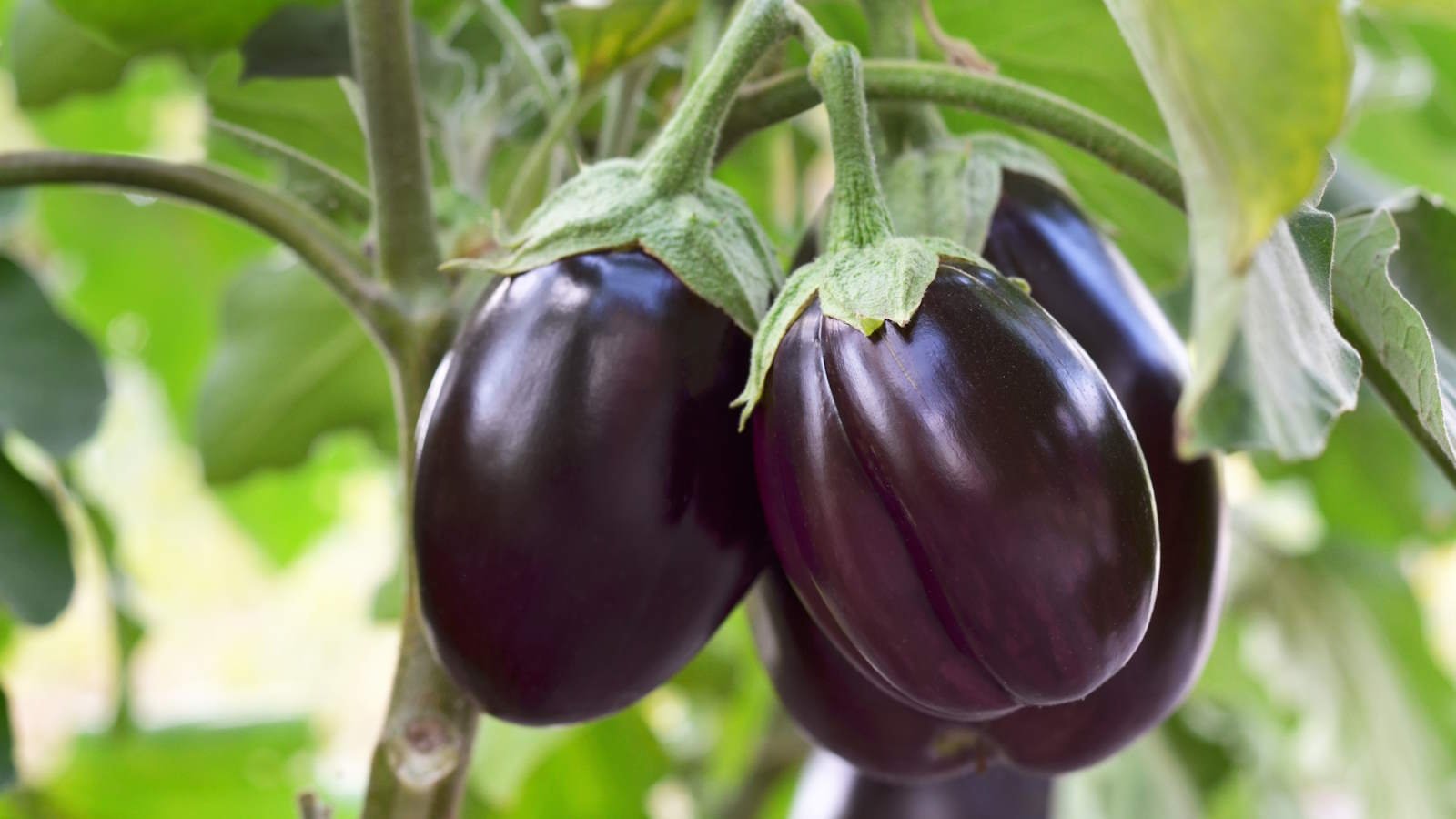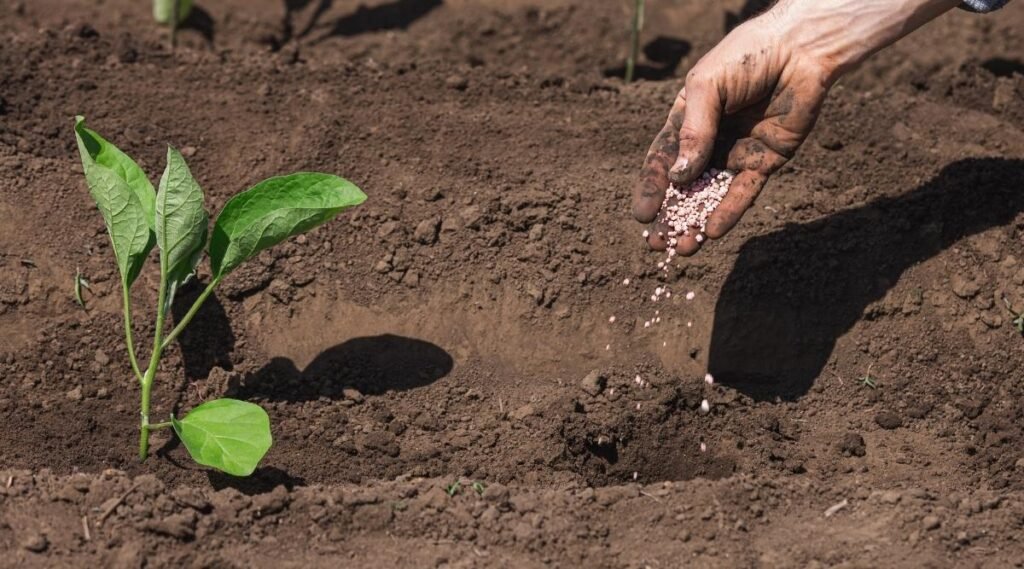
When and How to Fertilize Eggplant | Top Tips for a Bumper Crop
Eggplants, known for their rich flavor and versatility, are a rewarding addition to any garden. Achieving a bumper crop of eggplants requires careful attention to fertilization and harvesting techniques. Here’s an in-depth guide on when and how to fertilize your eggplants, coupled with expert tips for picking them at their peak.
When to Fertilize Eggplants
At Planting

- Initial Soil Preparation:
- Organic Matter: Enrich the soil with well-rotted compost or aged manure. This organic matter improves soil structure, fertility, and moisture retention.
- Balanced Fertilizer: Use a balanced granular fertilizer, such as 10-10-10, at planting time. Apply about 1 to 2 tablespoons per plant, mixing it into the soil at the bottom of the planting hole.
Early Growth Stage

- First Fertilization: About 3-4 weeks after planting, apply a balanced liquid fertilizer to promote strong root development and healthy foliage growth.
- Frequency: Continue fertilizing every 2-3 weeks during the growing season to ensure consistent nutrient availability and robust plant growth.
Mid-Season Boost

- Side Dressing: When plants begin to flower and set fruit, switch to a high-potassium fertilizer to support fruit development. A 5-10-10 or 10-20-20 formulation is ideal.
- Application: Apply the fertilizer around the base of the plants, keeping it away from the stems and leaves to prevent burn. Water thoroughly after application to help the nutrients reach the roots.
How to Fertilize Eggplants

- Granular Fertilizers:
- Application Method: Spread the fertilizer evenly around the base of the plants, approximately 6 inches away from the stem. Lightly work it into the top 1-2 inches of soil to ensure even distribution.
- Watering: Always water after applying granular fertilizers to help dissolve the nutrients and transport them to the root zone.
- Liquid Fertilizers:
- Dilution: Follow the manufacturer’s instructions for proper dilution rates to avoid over-fertilization, which can harm the plants.
- Application: Apply the diluted solution directly to the soil around the base of the plants, ensuring even coverage. Avoid contact with the foliage to prevent potential leaf burn.
- Organic Options:
- Compost Tea: Brew compost tea by steeping compost in water for 24-48 hours. Apply the liquid to the soil around the plants to provide a gentle nutrient boost.
- Fish Emulsion: Dilute fish emulsion according to package directions and apply it as a soil drench or foliar spray, offering an organic alternative rich in nitrogen and other essential nutrients.
Top Tips for Picking Eggplants

- Harvest Timing: Pick eggplants when they are firm and glossy but before the skin becomes dull or wrinkled. Overripe eggplants can become bitter and seedy.
- Size Matters: Depending on the variety, eggplants are typically ready to harvest when they reach 4-6 inches in length. Check seed catalogs or plant tags for specific size guidelines.
- Color Check: For most varieties, a deep, rich color indicates ripeness. For example, dark purple eggplants should have a uniform hue without green patches.
- Touch Test: Gently press the fruit with your thumb. If the skin springs back, it’s ripe. If an indentation remains, the eggplant may be overripe.
- Cut, Don’t Pull: Use sharp scissors or a knife to cut the fruit from the plant, leaving a small portion of the stem attached. Pulling can damage the plant and affect future yields.
Additional Tips for a Bumper Crop

- Consistent Watering: Keep the soil consistently moist, but not waterlogged. Mulch around the plants to retain moisture and regulate soil temperature.
- Pest Control: Regularly inspect plants for pests such as aphids, flea beetles, and spider mites. Use organic pest control methods like neem oil or insecticidal soap.
- Support Structures: Use stakes or cages to support the plants as they grow, preventing branches from breaking under the weight of the fruit.
- Pruning: Remove any yellow or damaged leaves to improve air circulation and reduce the risk of disease.

By following these guidelines for fertilizing and harvesting, you’ll be well on your way to enjoying a bumper crop of delicious, homegrown eggplants.
Proper fertilization not only ensures healthy plant growth but also enhances the quality and flavor of your harvest.

 Happy gardening
Happy gardening 






